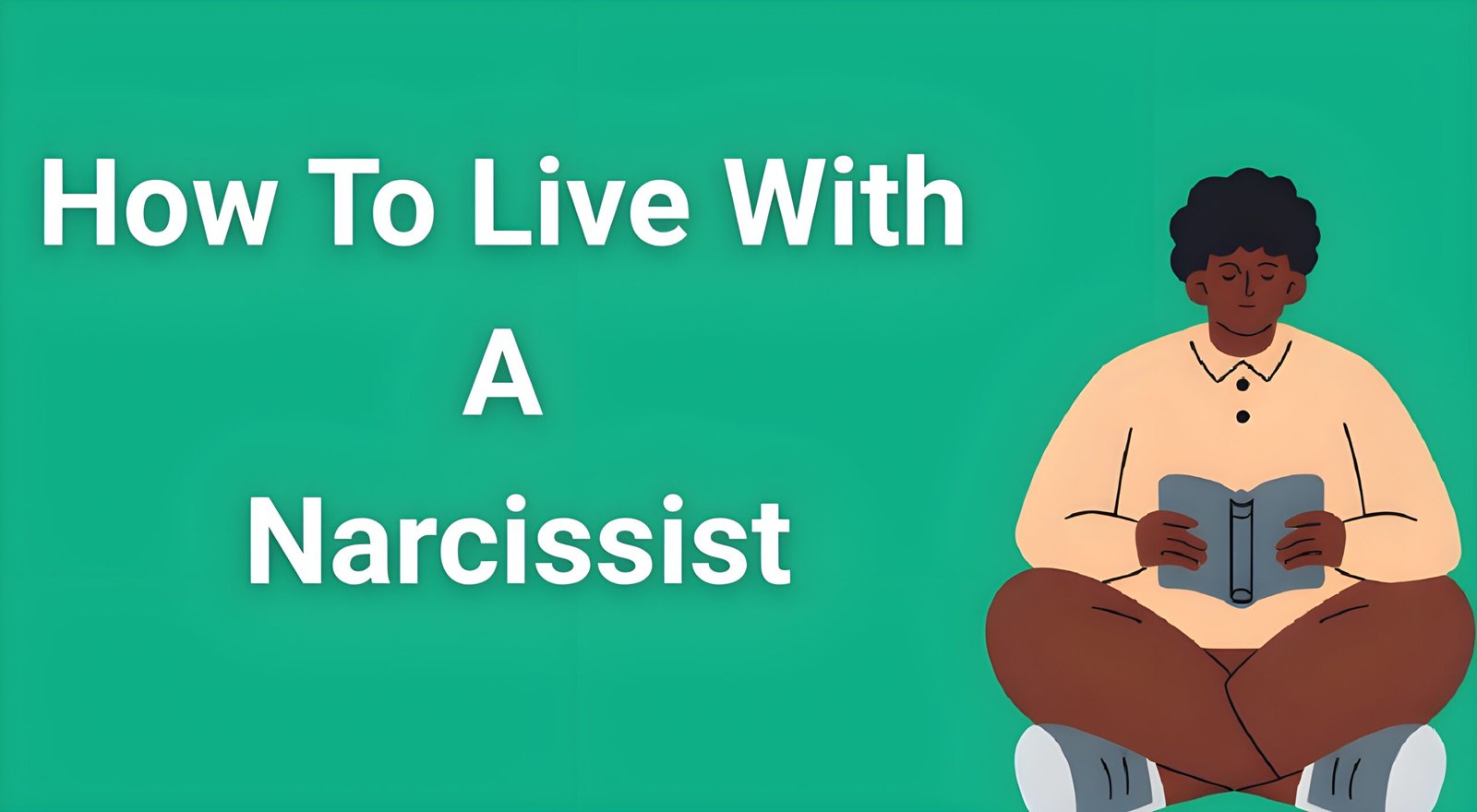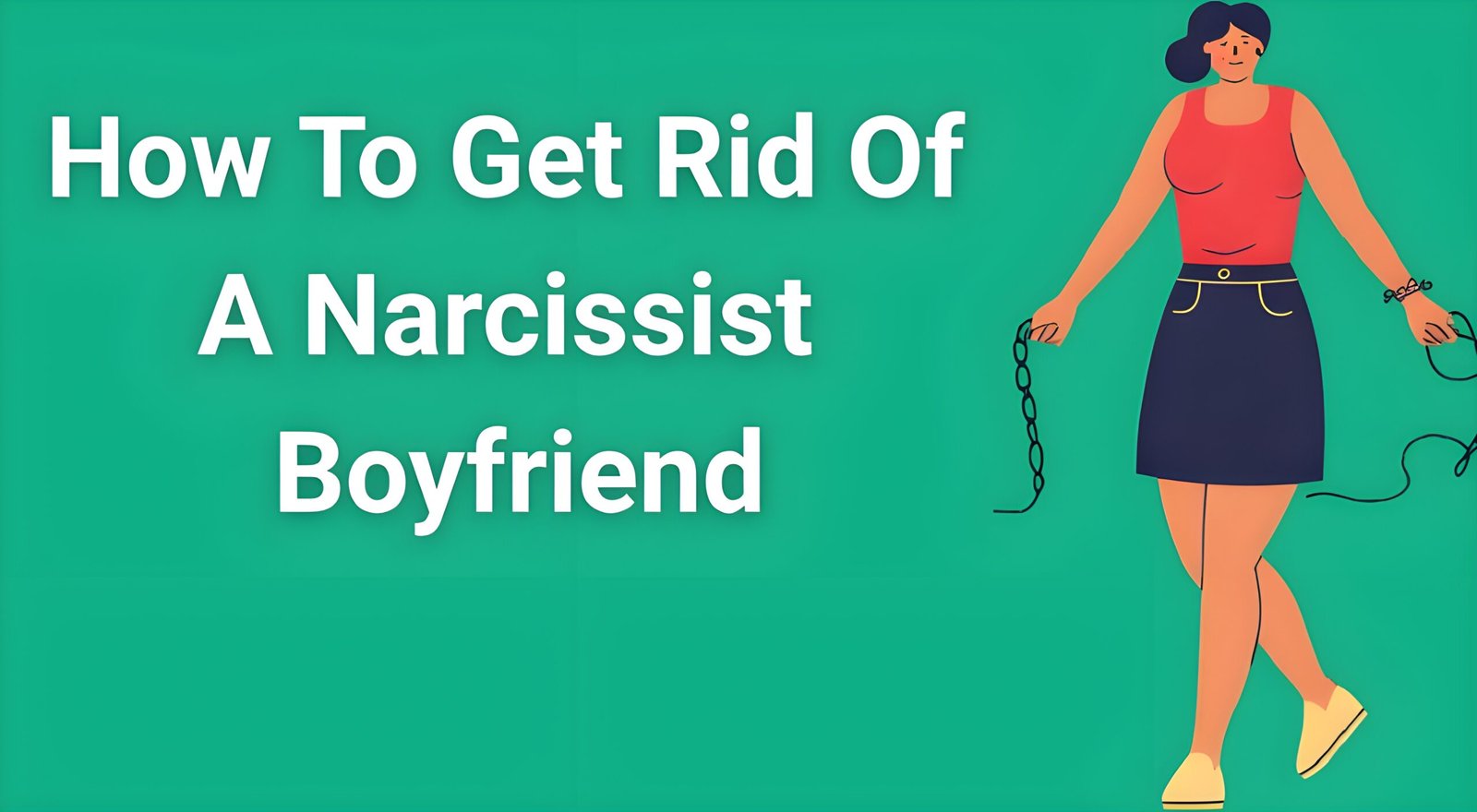Living with a narcissist feels like walking through an emotional minefield every single day. Whether it’s a spouse, parent, family member, or roommate, knowing how to live with a narcissist becomes essential for your mental health and survival when leaving isn’t immediately possible.
- Understanding the Reality of Living with a Narcissist
- Recognizing Narcissistic Manipulation Tactics
- Essential Strategies for How to Live with a Narcissist Safely
- Advanced Survival Techniques for Complex Situations
- Protecting Your Mental Health While Living with a Narcissist
- Planning Your Exit Strategy Safely
- Frequently Asked Questions
- Conclusion: Your Journey to Freedom Starts Today
You’re not alone in this struggle. Millions of people worldwide find themselves trapped in relationships with narcissistic individuals, questioning their sanity while desperately seeking ways to protect their sense of self. This comprehensive guide will equip you with proven strategies to navigate this challenging dynamic while preserving your identity and planning for a healthier future.
Understanding the Reality of Living with a Narcissist
Before diving into survival strategies, it’s crucial to understand what you’re truly dealing with. Narcissistic individuals operate from a fundamentally different emotional framework than most people. They lack genuine empathy, require constant validation, and view relationships as opportunities for control rather than connection.
When you’re learning how to live with a narcissist, accepting this harsh reality becomes your first line of defense. They won’t change because you love them enough, try harder, or give more of yourself. Understanding this helps you shift from trying to fix the relationship to protecting yourself within it.
The emotional toll of narcissistic abuse often manifests as confusion, self-doubt, anxiety, and a gradual erosion of your sense of reality. You might find yourself constantly questioning your memories, apologizing for things that weren’t your fault, or feeling like you’re walking on eggshells to avoid their explosive reactions.
Recognizing Narcissistic Manipulation Tactics
Gaslighting and Reality Distortion
One of the most damaging aspects of living with a narcissist involves their systematic distortion of reality. Gaslighting makes you question your own perceptions, memories, and sanity. They might deny conversations that happened, claim you’re “too sensitive,” or insist events occurred differently than you remember.
Documenting interactions becomes crucial when dealing with narcissistic gaslighting. Keep a private journal of conversations, take screenshots of text messages, and maintain records of important events. This documentation serves as your anchor to reality when they attempt to rewrite history.
Love Bombing and Trauma Bonding
Narcissists excel at creating intense emotional highs followed by devastating lows. This cycle creates trauma bonds stronger than normal emotional attachments. During love-bombing phases, they shower you with attention, gifts, and promises of change. These moments feel like glimpses of the person you fell in love with, making it incredibly difficult to maintain emotional distance.
Understanding trauma bonding helps explain why leaving feels impossible even when you logically know the relationship is toxic. Your brain becomes addicted to the relief that comes after periods of abuse, creating a powerful psychological dependency that requires specific strategies to overcome.
Essential Strategies for How to Live with a Narcissist Safely
1. Master the Gray Rock Method
The gray rock technique involves becoming as uninteresting as possible during interactions with the narcissist. Respond with minimal emotion, provide short answers, and avoid sharing personal information that could be used against you later.
When they try to provoke emotional reactions, imagine yourself as a boring gray rock that offers nothing engaging. This strategy often causes narcissists to lose interest and seek attention elsewhere, reducing the frequency and intensity of conflicts.
2. Establish Non-Negotiable Boundaries
Living with a narcissist requires crystal-clear boundaries enforced consistently. Decide what behaviors you will and won’t tolerate, then communicate these limits calmly and directly. More importantly, be prepared to enforce consequences when boundaries are crossed.
For example, if they raise their voice during conversations, clearly state that you won’t continue discussions conducted disrespectfully. Then follow through by leaving the room or ending the conversation immediately when this boundary is violated.
3. Create Emotional and Physical Safe Spaces
Identify areas in your living situation where you can retreat when tensions escalate. This might be a bedroom with a lock, a friend’s house, or even a public space like a library or coffee shop. Having predetermined safe spaces allows you to remove yourself from volatile situations quickly.
Emotional safe spaces are equally important. Cultivate relationships with trusted friends or family members who understand your situation and can provide emotional support without judgment. These connections become lifelines during particularly difficult periods.
4. Document Everything for Your Protection
Maintaining detailed records serves multiple purposes when learning how to live with a narcissist. Documentation provides evidence if legal intervention becomes necessary, helps you remember the reality of events when gaslighting intensifies, and creates a clear pattern of behavior that validates your experiences.
Record incidents with dates, times, witnesses present, and exact quotes when possible. Store this information securely where the narcissist cannot access it. Cloud storage with strong passwords or a trusted friend’s home provides safe documentation storage.
5. Develop Financial Independence Strategies
Financial abuse often accompanies narcissistic relationships. The narcissist may control bank accounts, hide assets, or prevent you from working to maintain dependency. Building financial independence, even in small increments, creates future options and reduces their control over your life.
Consider opening a separate bank account they don’t know about, saving small amounts of cash, maintaining your own credit cards, and keeping important financial documents in a secure location outside the home.
6. Protect Your Support Network
Narcissists systematically isolate their targets from friends, family, and support systems. They may spread lies about people who care about you, create conflicts at social gatherings, or demand all your time and attention to prevent outside relationships.
Actively maintain connections with people who knew you before the narcissistic relationship began. These relationships serve as mirrors reflecting your true self when self-doubt becomes overwhelming. Schedule regular contact with supportive friends and family members, even if you must do so discreetly.
Advanced Survival Techniques for Complex Situations
Managing Co-Parenting with a Narcissistic Partner
When children are involved, learning how to live with a narcissist becomes infinitely more complex. Protecting your children while maintaining your own emotional stability requires specialized strategies and often professional guidance.
Focus on parallel parenting rather than co-parenting when possible. This approach minimizes direct contact with the narcissistic parent while ensuring children maintain relationships with both parents. Document all interactions related to the children, maintain consistent routines, and shield children from adult conflicts as much as possible.
Children in these environments need extra emotional support and validation. Help them understand that the chaos isn’t their fault while teaching them healthy relationship dynamics through your own behavior and choices.
Dealing with Workplace Narcissists
Professional environments present unique challenges when narcissistic individuals hold positions of authority or influence. Protecting your career while managing narcissistic abuse requires careful documentation, strategic communication, and often involvement from human resources or higher management.
Keep detailed records of all interactions, communicate primarily through email to maintain written records, and build strong relationships with colleagues who can serve as witnesses to concerning behavior. When possible, limit one-on-one interactions and ensure witnesses are present during important conversations.
Navigating Narcissistic Family Dynamics
Family relationships with narcissistic individuals create particularly complex emotional challenges. The history, shared memories, and family pressure to maintain relationships often complicate decisions about boundaries and contact levels.
Consider implementing structured contact approaches that limit opportunities for manipulation while preserving necessary family connections. This might involve limiting visits to specific timeframes, bringing supportive friends to family gatherings, or meeting only in public spaces where inappropriate behavior is less likely to occur.
Protecting Your Mental Health While Living with a Narcissist
Building Emotional Resilience
Living with a narcissist requires tremendous emotional strength and resilience. Developing coping strategies that work specifically for your situation becomes essential for long-term survival and recovery.
Practice mindfulness and grounding techniques to stay connected to your own reality when gaslighting intensifies. Regular meditation, deep breathing exercises, and physical activity help regulate your nervous system and reduce the chronic stress associated with narcissistic abuse.
Seeking Professional Support
Working with a therapist who understands narcissistic abuse provides invaluable support and guidance. Look for professionals with specific experience in trauma therapy, narcissistic abuse recovery, or complex PTSD treatment.
Individual therapy offers a safe space to process experiences, develop coping strategies, and plan for the future without judgment or pressure to make specific decisions about the relationship. A qualified therapist can help you navigate the complex emotions involved in these situations while building skills for long-term recovery.
Many people find that understanding their situation through professional analysis provides clarity that years of confusion couldn’t achieve. Having an expert evaluate your specific circumstances can validate your experiences and provide personalized strategies for protection and recovery.
Creating a Self-Care Routine That Actually Works
Self-care in narcissistic relationships goes far beyond bubble baths and face masks. It involves actively protecting your physical, emotional, and spiritual well-being through consistent, intentional practices.
Prioritize sleep hygiene, maintain regular exercise routines, and focus on nutrition that supports your physical health during this stressful period. Engage in activities that reconnect you with your true self and provide joy outside the narcissistic dynamic.
Reading, journaling, art, music, or any creative outlet can serve as emotional releases and help maintain your sense of identity. These activities remind you of who you are beyond the narcissistic relationship and provide hope for a different future.
Planning Your Exit Strategy Safely
Breaking the Trauma Bond
One of the most challenging aspects of learning how to live with a narcissist involves understanding and breaking the trauma bond that keeps you emotionally attached despite the abuse. This neurobiological response creates addiction-like symptoms that make leaving feel impossible.
Breaking trauma bonds requires specific strategies that address both the emotional and physiological aspects of this attachment. Understanding that your strong feelings don’t necessarily indicate love but rather a trauma response helps create the emotional distance needed for clear decision-making.
Working through a structured recovery program designed specifically for trauma bonding can accelerate this process significantly. Many people find that following a day-by-day system provides the support and guidance needed to break free from these powerful psychological chains.
Developing Your Safety Plan
Whether you’re planning to leave eventually or need strategies for staying safe while remaining in the relationship, having a comprehensive safety plan becomes crucial. This plan should address both physical safety and emotional protection.
Include emergency contact information, safe places to go during crises, important documents stored in secure locations, and a support network aware of your situation. Having these elements in place provides peace of mind and faster response capabilities during dangerous situations.
Consider creating a “go bag” with essential items, copies of important documents, some cash, and medications stored in a location the narcissist cannot access. This preparation allows for quick departure if situations become dangerous.
Building Independence Gradually
Learning how to live with a narcissist often involves gradually building the independence needed for eventual freedom. This process requires patience and strategic planning but creates options that didn’t exist before.
Focus on rebuilding your identity, developing job skills if needed, establishing financial independence, and strengthening your support network. Each step forward increases your options and reduces the narcissist’s control over your life.
Many people find that working toward independence, even while remaining in the relationship temporarily, provides hope and motivation to continue during difficult periods. Having concrete goals and seeing progress toward freedom makes the daily challenges more bearable.
Frequently Asked Questions
How long does it take to recover from living with a narcissist?
Recovery timelines vary significantly based on the length and intensity of the narcissistic relationship, your support system, and access to professional help. Many people begin feeling clearer within weeks of implementing protective strategies, but full recovery often takes months to years. The important thing is starting the process rather than waiting for perfect timing.
Can narcissists ever change or get better?
While personality disorders can be treated with intensive therapy, the vast majority of narcissists don’t seek treatment because they don’t believe anything is wrong with their behavior. Expecting change often keeps people trapped in abusive cycles longer than necessary. Focus on protecting yourself rather than trying to fix them.
Is it possible to have a healthy relationship with a narcissist?
Traditional healthy relationships require mutual respect, empathy, and compromise – qualities narcissists struggle to provide consistently. While some people develop coping strategies that make the relationship more manageable, it’s important to have realistic expectations about the limitations of these connections.
What should I do if I have children with a narcissist?
Protecting children while managing a narcissistic co-parent requires specialized strategies and often legal guidance. Focus on documenting concerning behavior, maintaining consistency in your own parenting, and providing emotional stability for your children. Consider working with a family therapist who understands narcissistic abuse dynamics.
How do I know if I’m overreacting or if this is really abuse?
If you’re questioning whether your experiences constitute abuse, this often indicates gaslighting has been effective in making you doubt your perceptions. Trust your instincts and consider seeking an objective assessment from a professional who specializes in narcissistic abuse evaluation.
Can medication help with the effects of living with a narcissist?
While medication cannot fix narcissistic relationships, it can help manage symptoms of anxiety, depression, or PTSD that result from chronic emotional abuse. Consult with a psychiatrist who understands trauma responses to explore whether medication might support your overall treatment plan.
Conclusion: Your Journey to Freedom Starts Today
Learning how to live with a narcissist while protecting your sanity and sense of self requires tremendous courage and strategic planning. The strategies outlined in this guide provide a foundation for survival, but remember that every situation is unique and may require personalized approaches.
Your experiences are valid, your feelings matter, and you deserve relationships built on respect, kindness, and genuine care. While the path forward may seem overwhelming, thousands of people have successfully navigated similar situations and found freedom on the other side.
The most important step is recognizing that you have options, even when they’re not immediately apparent. Whether you’re planning to leave eventually or need strategies for staying safe while remaining in the relationship, implementing these protective measures starts your journey toward a healthier future.
Remember, healing is possible, freedom is achievable, and your life can be filled with peace, joy, and authentic connections. Take it one day at a time, celebrate small victories, and never stop believing in your worth and potential for happiness.






